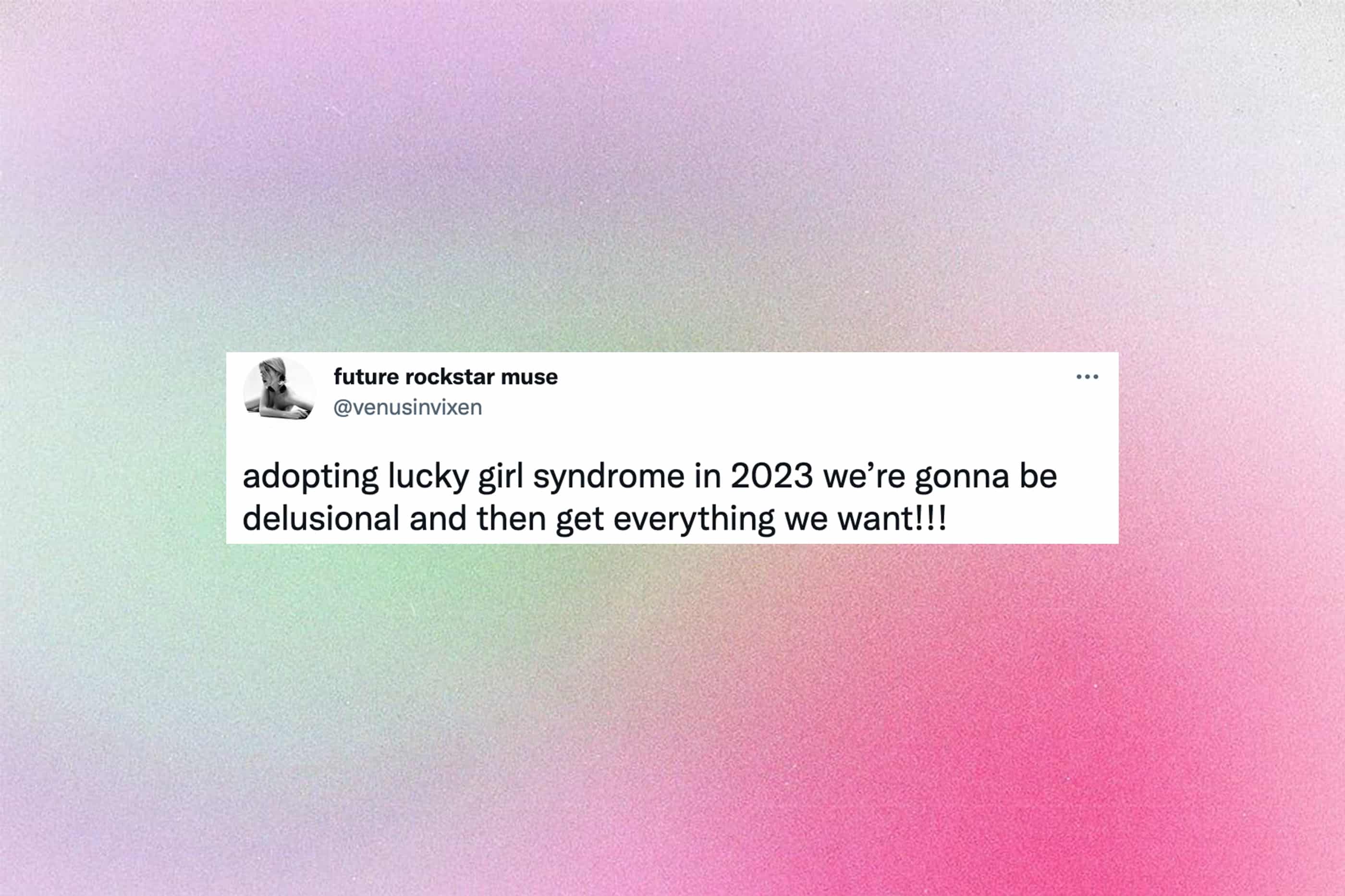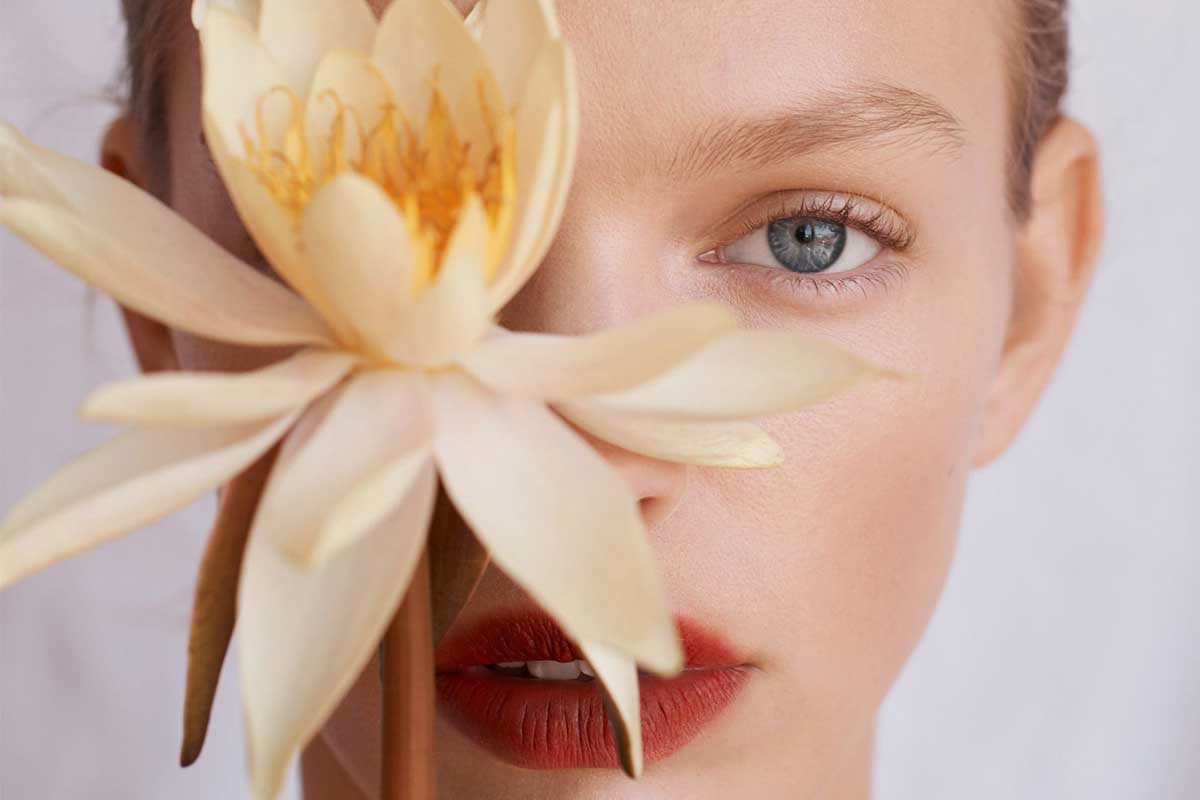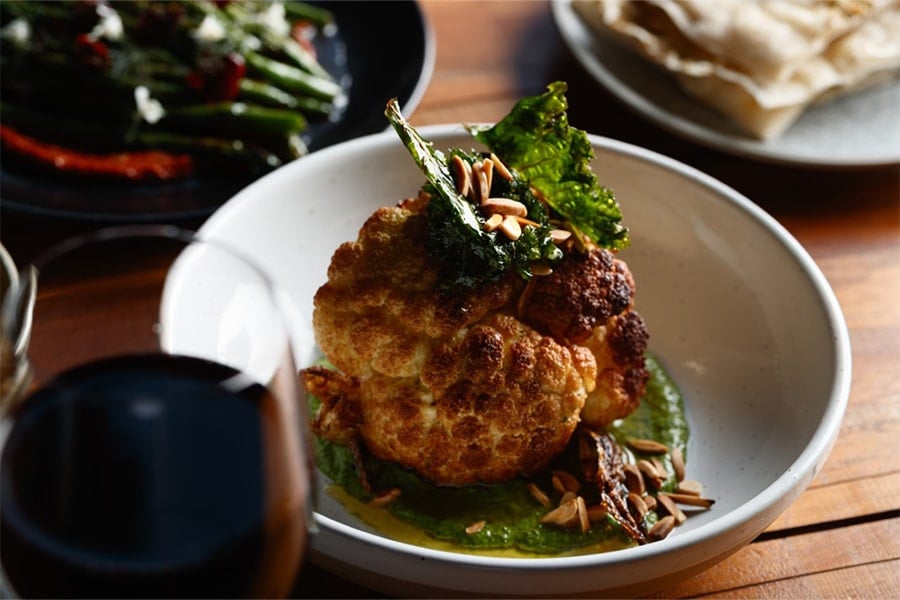
Last year was marked, not by lockdowns or face masks or rising Covid-19 cases (though there were plenty), but by a need to define ourselves outside of the pandemic. It was a shift away from plague-speak towards hedonism, sex, indie sleaze – which is always followed by an undercurrent of nihilism. Now, as time ticks over into a New Year, there's a sense that we're ready to pack away the debauchery, switch off from goblin mode, create our 'In and Out' lists and embrace optimism. Nothing represents this more than Lucky Girl Syndrome.
It began where all new-age pseudo psychology trends do: TikTok. Although, many have pointed out Lucky Girl Syndrome is just Gen Z's spin on The Secret and Neville Goddard's theory, the law of assumption.
"Ever since I can remember I've always made it a point to tell everyone I am so lucky. I always expect great things to happen to me, and they do," TikTok user Laura Galebe tells her audience in a video from December 2022. The idea is that you will attract good things in your life by vocalising how lucky you are. Basically, just like the law of assumption, what you assume to be true will come true.
@lauragalebe The secret is to assume and believe it before the concrete proof shows up. BE DELUSIONAL. #bedelusional #luckygirlsyndrome #affirmations #lawofassumption #manifestationtiktok #manifestingtok #lawofassumptiontok #manifestation ♬ original sound - Laura Galebe
It's a seductive idea. Change your mindset, repeat this mantra and watch how the universe sends opportunities your way. Other users like @skzzolno vouch for the method too. In their video, which has clocked up 4.6 million views, the two friends discuss how they embraced the method in college by repeating "everything just work out for us" and it "literally kind of changed our lives".
@skzzolno i don’t know why it works but… everything works out for us #luckygirlsyndrome #luckygirl #luckygirlsyndrom #manifestation #affirmationsoftheday #affirmations #collegelifehack #lifehack #college #collegegirls ♬ original sound - skzzolno
But how do you measure luck? It's famously a fickle thing. We know even the best people get dealt the worst hands. And if we're to read between the lines of Lucky Girl Syndrome, does that mean the opposite is true too? At one point in her video, Laura Galebe says "there's nothing I hate more than people who are like, 'yeah, but I'm a realist'. Cool, that's probably why your life is going like shit." The flipside to the logic of Lucky Girl Syndrome is that if you don't think positive thoughts, bad luck comes your way.
It's no coincidence that the top ten users that surface when you type Lucky Girl Syndrome into TikTok are white women. Which begs the question, is luck the high you're riding, or is it privilege? That's the problem with luck, it fails to take into account the very real social and economical systemic factors that stand in the way of opportunities.
Unlike the practice of manifestation, Lucky Girl Syndrome does not require you to do the work, either. All you need is positive thoughts. And anyway, it's easy to feel lucky when you focus on the positives, it has a placebo effect. Which is how we've ended up with all these smug, almost to the point of irony, testimonials. Lucky girl syndrome? We already have a term for it: self-delusion. "BE DELUSIONAL", Galebe writes in the video caption. If you ask me, the delusional bit is the most attractive part. That's the selling point, no need to dress it up, just be your feral girl self and go.
At its heart, Lucky Girl Syndrome is about control. Unlike traditional mantras – "I'm grateful", "I'm worthy" – which are about affirming your value and being grateful for the things you have, this one is uttered in bad faith. It's like hearing your sister interrupt a conversation two weeks before Christmas to say how much she wants a massage, in the hope someone will gift one to her for the holidays. And while this isn't inherently insidious, it is dishonest. An attempt to bargain with the universe and change the course of what's to come. Not all of us can be so lucky.



